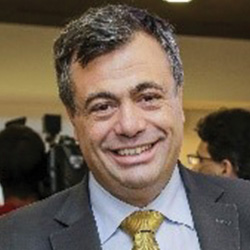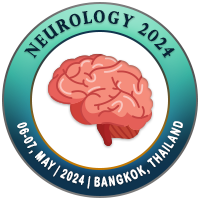
Joaquim Quintino-Aires
Vygotsky Institute, PortugalTitle: Neurosciences, new clinical practice, and obsessive-compulsive disorder
Abstract
On human mental activity, the cellular orientation by R. Virchow is no longer so heuristic. The cell (neuron) is not the unit of mental life, but human activity. Plasticity depends not only on genetics, proteins, information in the DNA inside neuron or other cells, but it depends also on the object-oriented activity performed by the individuals in ontogenesis. More and more information from neuroscience and molecular biology and molecular genetics, helps to build our understanding on human mind and behavior. Advances in science pushed us to rethink our clinical practice. Vygotsky’s cultural-historical & activity theory seems consistent in the integration of neurosciences with psychological science, is the fact that is a monistic approach. We illustrate our idea with a clinical case of a man diagnosed by psychiatry with obsessive-compulsive disorder (OCD). The neuropsychological education program includes the methodology of neuropsychological rehabilitation proposed by A.R. Luria and mental human developmental (step-by-step) theory of P. Galperin. The prevalence of OCD is high, and remission rates are extremely low (at 15 years, 60% continue to show the symptoms). The results with the clinical case presented here, as well as in several hundred other clinical cases are encouraging. Vygotsky's cultural-historical & activity theory seems to be a good proposal for a new clinical practice in clinical psychology and psychiatry. This article is an invitation to other colleagues to experiment the same methodology, in other clinical centers and even in other countries, in the sense that we study the possibility of this being an efficient and effective response that we intend to have available to our clients.
Biography
Joaquim Quintino-Aires, professor, and clinical psychologist. Graduated in psychology at the Classical University of Lisbon, he completed a PhD at the New University of Lisbon. He began his professional activity as a psychologist at the Lisbon Military Hospital in 1989, in the neurology and neurosurgery and physical medicine and rehabilitation services. In addition to psychology, at the university level, he also studied linguistics and health sciences (biology and molecular genetics). He studied medicine in Madrid and Lisbon. His research interest is brain transformability, with special emphasis on the neuropsychological development of citizenship skills. He published several books in Portugal and abroad, several book’s chapters and scientific articles and has given classes and lectures in more than 40 countries. In 2009 he was awarded the title of Honorary Professor Emeritus by the Moscow University Faculty of Psychology. In 2012 he received a prize from the Russian Psychological Society for his contribution to the development of Contemporary Psychology. In 2013 the Copernicus Prize of the Polish Society of Neuropsychology. In 2016, an award from the Russian Union for Mental Health for his contributions to global mental health. In 2017 he received the Alexandr Luria Prize, awarded by the University of Moscow.

